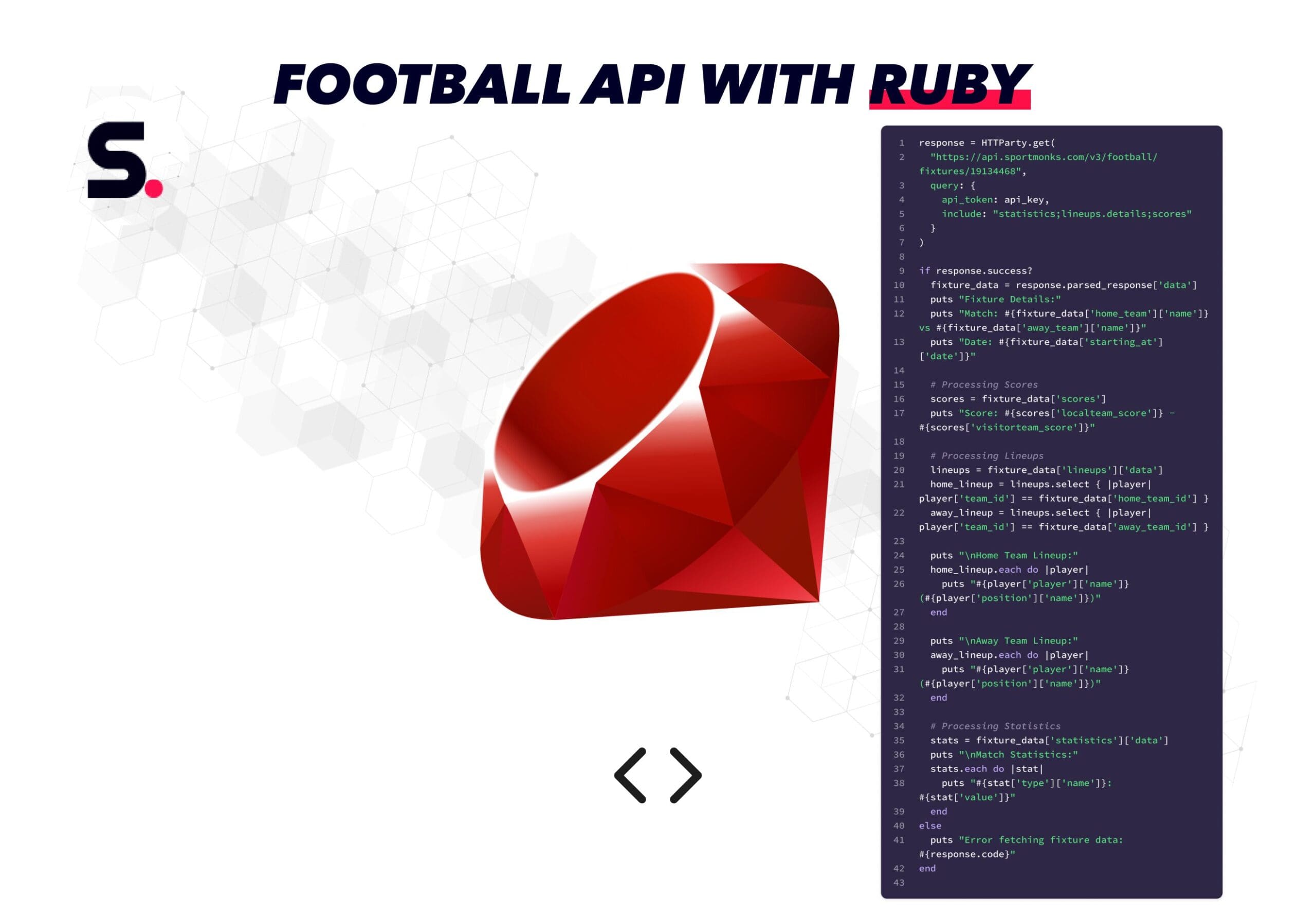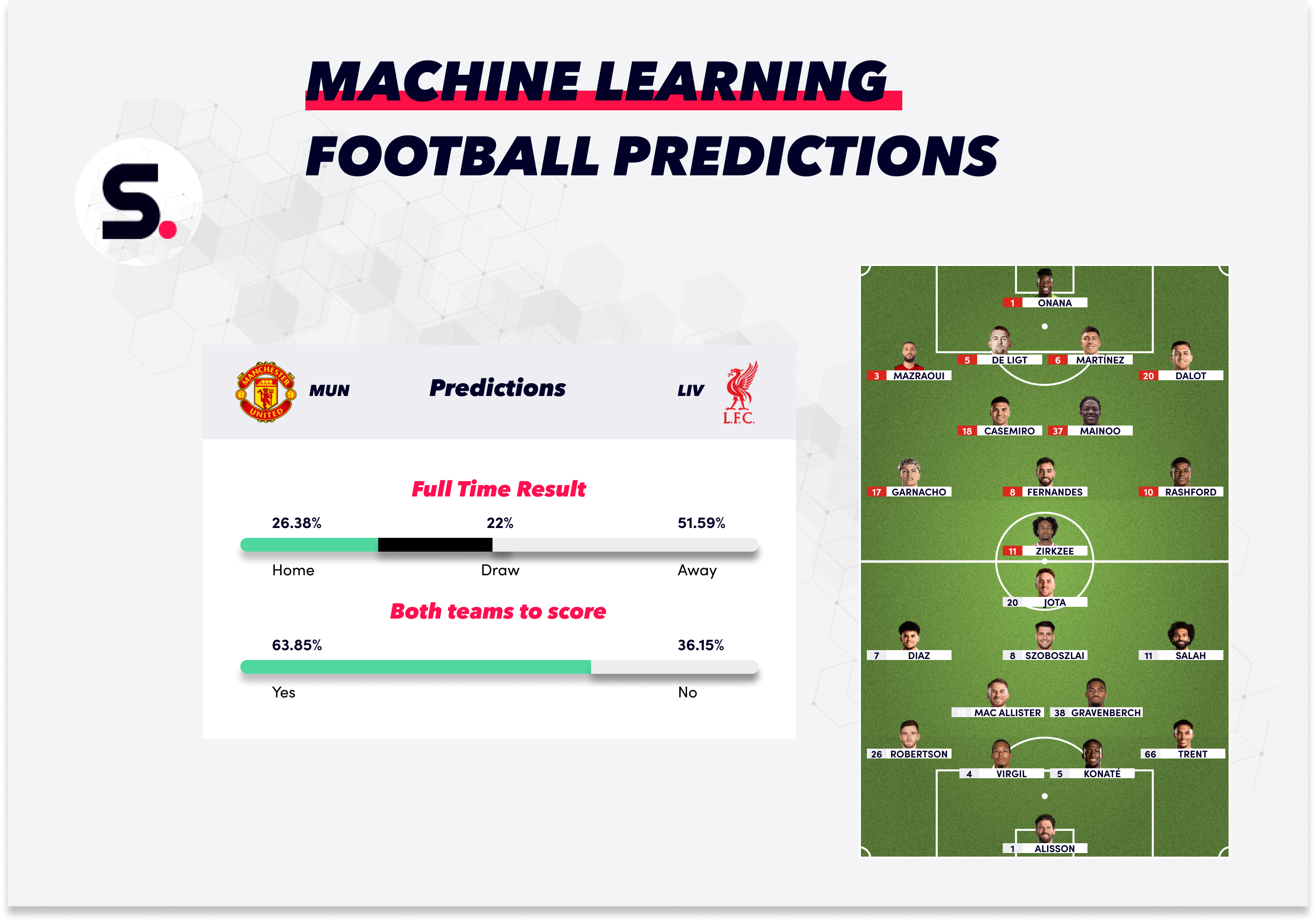
Contents
Football predictions have long been a part of the game, with fans, analysts, and experts making calculated guesses based on form, tactics, and statistics. However, recent advancements in machine learning have amplified this process, transforming how we analyse and predict football outcomes. Today, machine learning football predictions have become the new standard, enabling companies to generate faster and more precise football match predictions than ever before.
This marks an incredible opportunity for businesses in the football world. Whether you’re a betting company, a football analytics provider, or simply a developer passionate about creating prediction models, machine learning offers a cutting-edge solution that continually improves. These machine learning models learn from historical data and adapt to real-time updates, bringing unparalleled precision for predicting football match outcomes.
As AI continues to evolve, the versatility of these predictions will only grow, setting a new benchmark for companies wanting to stay competitive in a rapidly advancing industry. With machine learning techniques now integrated into football prediction processes, it’s clear that the future of football analytics lies in AI-powered predictions. Now, let’s dig into how these advancements have transformed football predictions and why companies should consider this shift.
What is Machine Learning Changing?
Machine learning (ML) has drastically reshaped football predictions, pushing beyond traditional methods that relied on expert opinion or basic statistical models. Historically, experts examined individual player performance, team form, and environmental factors to make predictions. While these methods had their benefits, they struggled to process vast amounts of data efficiently and often lacked precision.
Machine Learning, on the other hand, thrives on handling complexity and large datasets. It uses historical team performance data, player statistics, match statistics, season matches and various football data to determine the match outcome between teams. By analysing this wealth of information, ML algorithms uncover nearly impossible patterns for humans to spot. ML processes data at scale and continually learns from outcomes, refining its models for even greater accuracy in future predictions.
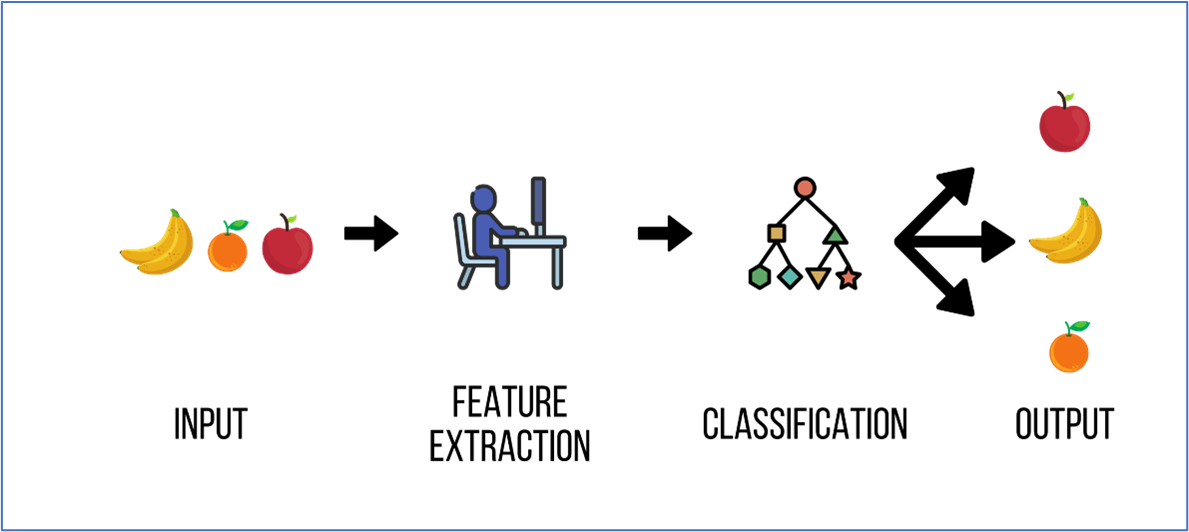
This adaptive nature is crucial, as Machine Learning allows for constant improvement. As the game changes, so do the models, ensuring that predictions stay relevant and highly accurate. In the following sections, we’ll examine concrete examples of how machine learning has transformed football predictions.
Example 1: Changes in the Betting Process
Before machine learning, the football betting industry heavily relied on human expertise and historical data. Bookmakers would manually assess team form, injuries, and head-to-head statistics to offer odds. This manual process was time-consuming and often imprecise, as it couldn’t fully account for unpredictable events like player form, tactical shifts, or unexpected turns in a football match.
Machine learning has revolutionised this process behind the scenes. Today, ML models analyse vast datasets in real-time, considering factors such as player fitness, team dynamics, and in-game variables like possession or shot frequency. Unlike traditional methods, ML algorithms learn from past games and dynamically adapt odds as new information becomes available.
For example, if a key player is injured mid-game, the ML algorithm will instantly update the prediction, refining the odds to reflect the new scenario. Missing a key player will likely influence the outcome of football matches. This fluidity makes betting platforms more responsive and accurate, offering users enhanced betting options. In short, machine learning has optimised the betting process, benefiting bookmakers and bettors by delivering more accurate, real-time predictions.
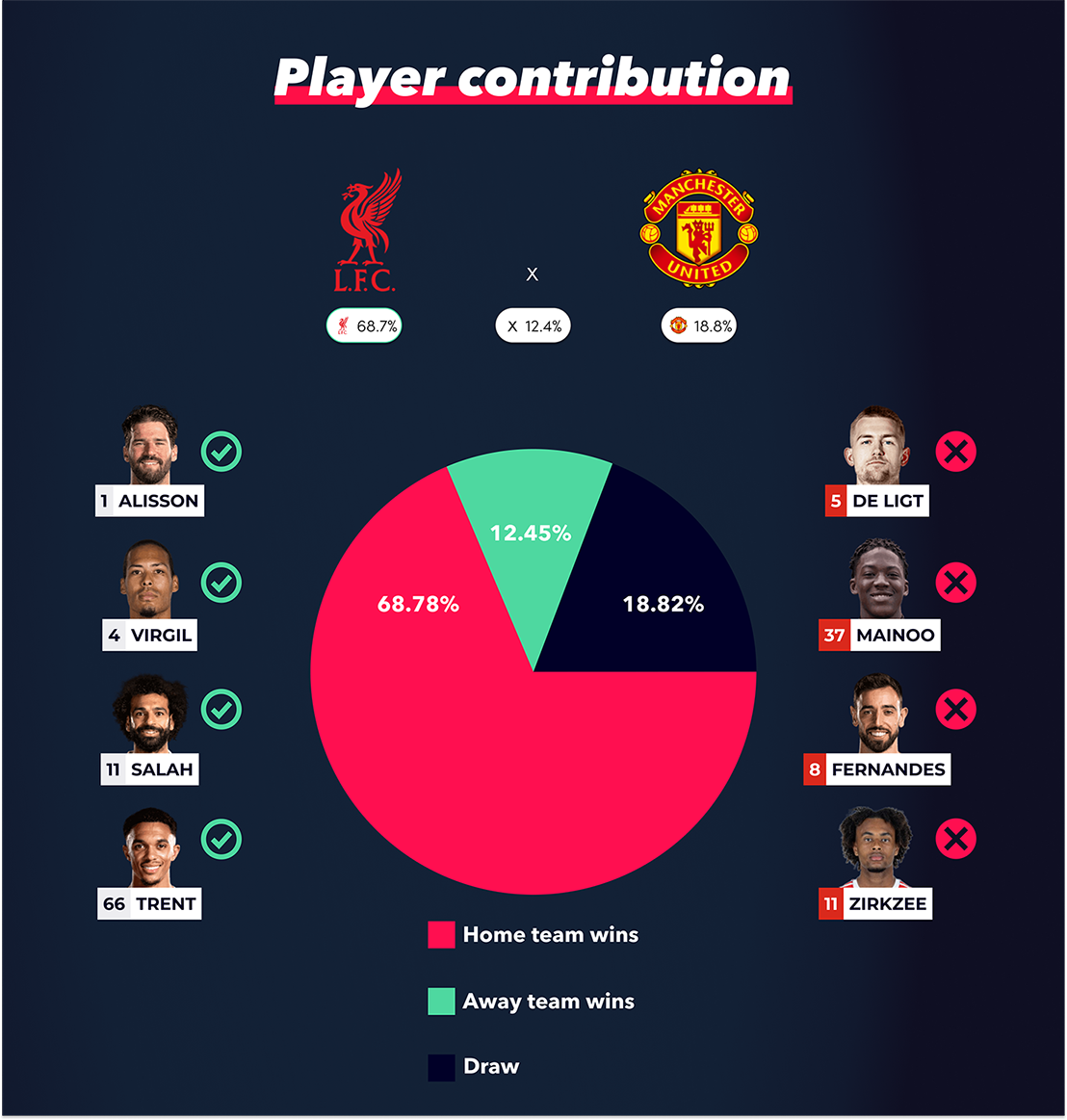
Example 2: Changes in Football Statistics
Machine learning has also transformed the way football statistics are analysed. One of the key metrics in modern football analytics is xG (expected goals), which estimates the quality of a goal-scoring chance based on variables like distance from goal, shot angle, and type of assist.
Traditionally, calculating xG involved basic statistical models that relied on historical shot data. However, AI has elevated this process by introducing advanced techniques. Machine learning algorithms now factor in a broader range of variables, including defensive positioning, weather, and even pressure from opponents. This makes xG far more reliable in predicting the likelihood of a goal.
These AI-driven statistics are invaluable for both football analysts and betting companies. By providing a clearer picture of match dynamics, these models allow for more accurate predictions. Whether assessing team form or predicting match outcomes, AI-powered statistics have become an essential part of the equation.

How is This Useful for Companies?
For companies in the football industry, machine learning presents a game-changing opportunity. ML trains algorithms on historical match data, player statistics, and live updates to create highly accurate prediction models. These models continually adapt as more data is introduced, making predictions more accurate.
Betting platforms can benefit from Sportmonks’ Football Predictions API. With the API, the platform can access real-time match football predictions to increase user engagement. Furthermore, they can use the Football API to display match odds, match statistics, events, player statistics and lineups, making it the total football application your user wants. This improves accuracy and attracts more users who trust the platform’s reliability.
The best part? You don’t need to be a data scientist to implement this technology. Sportmonks provides user-friendly APIs that allow you to integrate advanced ML models into your platform easily. The process is seamless, and the results are immediate—more accurate predictions, a better user experience, and, ultimately, higher revenue for your business.
If you’re ready to leverage AI-driven football predictions for your company, explore Sportmonks’ API today. You can get started with a free trial: Try out Sportmonks.
How to Implement Football Predictions Machine Learning on Your Website
Integrating machine learning football predictions into your website is simpler than you might think, especially with Sportmonks’ Football Predictions API. Here’s a step-by-step guide to get you started:
– Sign Up for the Sportmonks API: Head over to Sportmonks to create an account and access the Football Predictions API.
– Explore the Documentation: Sportmonks offers detailed tutorials and guides to help you integrate the API into your website. For football predictions, refer to the Predictions Tutorial for a step-by-step guide.
– Implement the API: Using your account details, plug the API into your website to fetch real-time data and predictions. Minimal coding knowledge is required.
– Customise Your Predictions: Adjust how the predictions are displayed and how frequently the data is updated based on your needs. Sportmonks’ API is flexible and designed for various use cases.
Worried about complexity? Don’t be. Sportmonks has simplified the process, providing extensive support for implementing Machine Learning-based predictions without a steep learning curve.
Boost Your Football Predictions Today
Machine learning has transformed football predictions, offering unmatched accuracy, adaptability, and real-time insights. Whether you’re running a betting platform, a football blog, or an analytics service, incorporating machine learning predictions into your football application is the future. Incorporate advanced football data for the top European Leagues, including xG, match statistics, player statistics, coach statistics, lineups, premium odds, league table and more!
Ready to get started? Explore the Sportmonks Football Predictions API and take your football predictions to the next level!
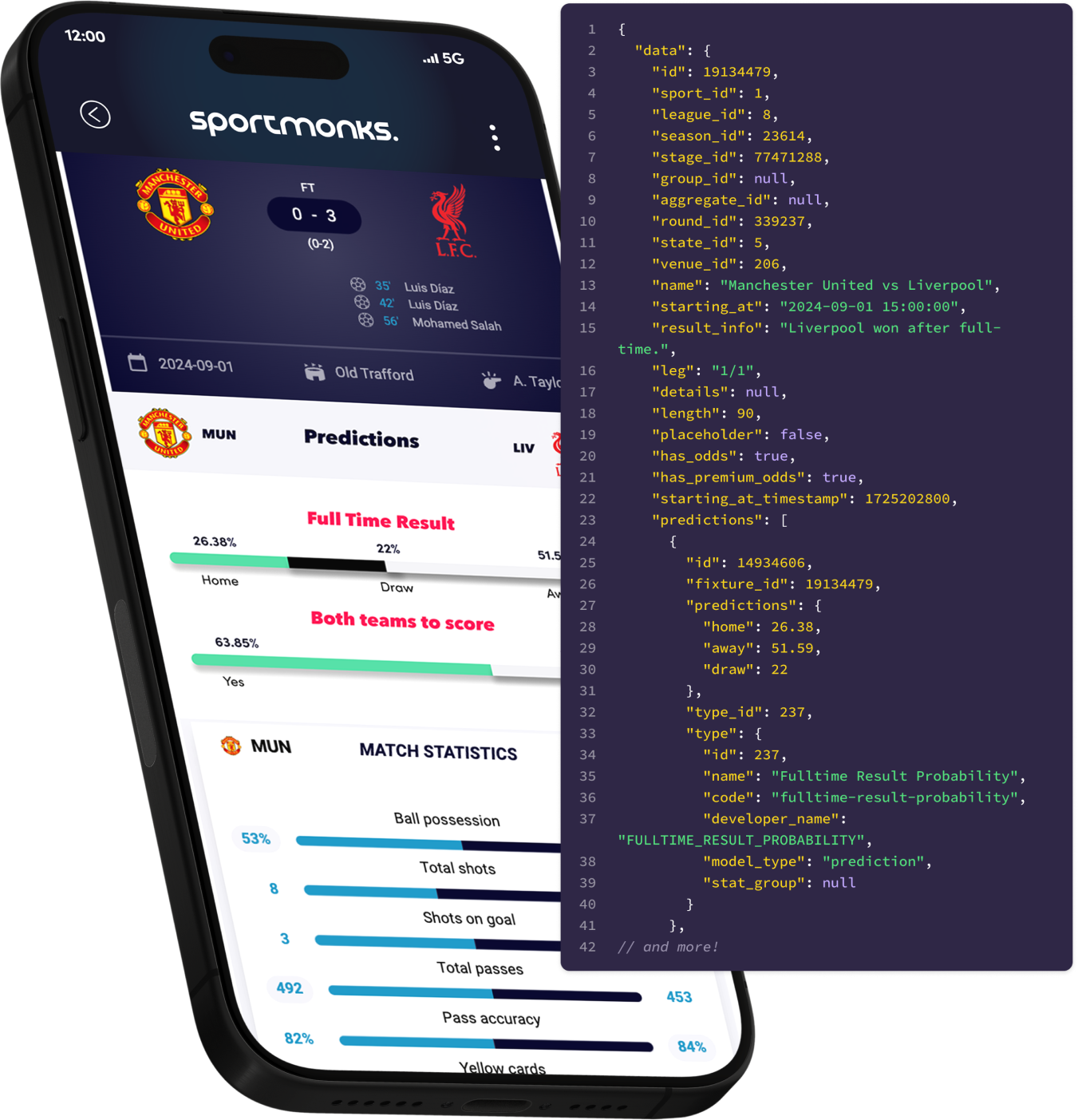
Ready to get started? Explore the Sportmonks Football Predictions API and take your football predictions to the next level!
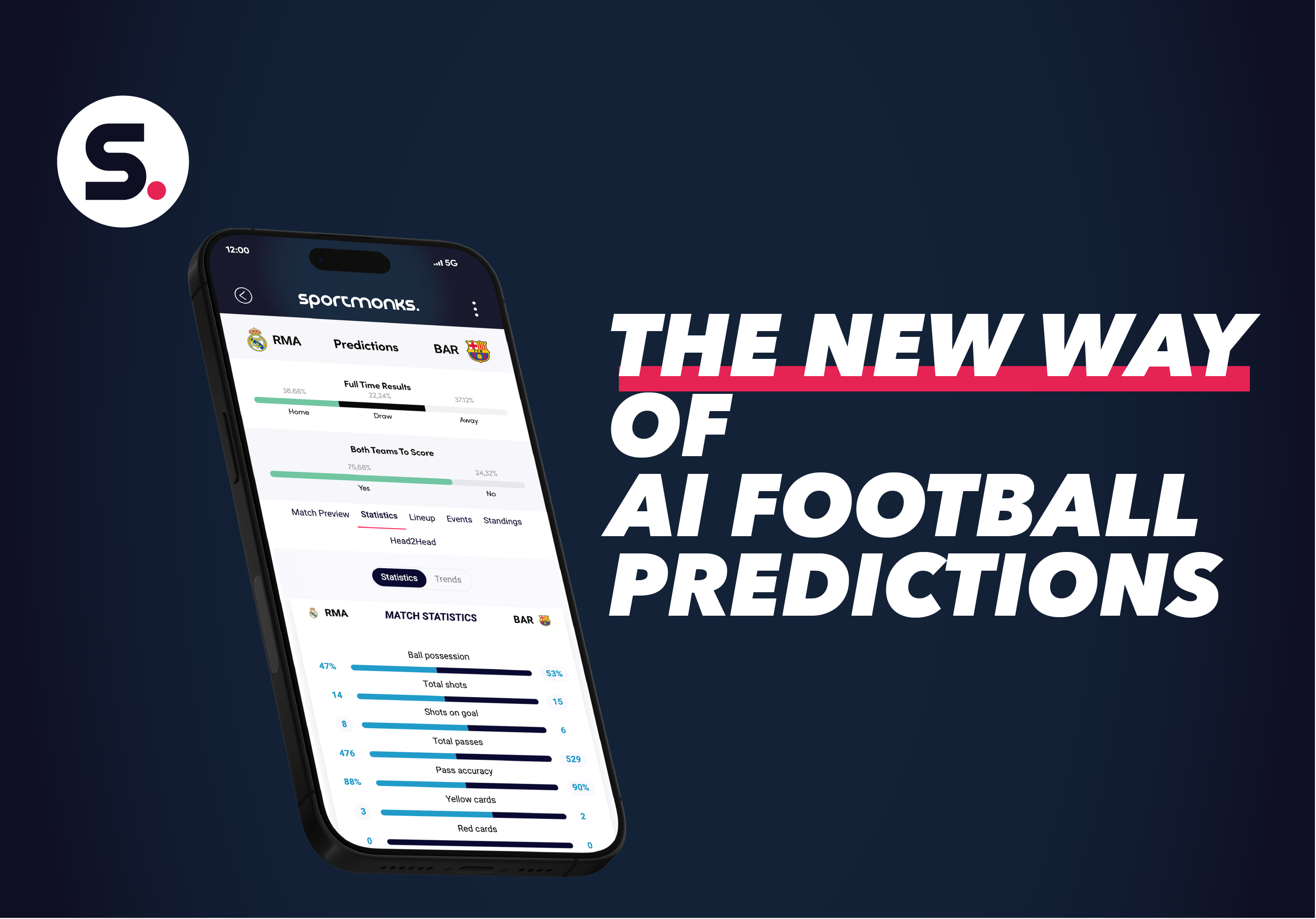
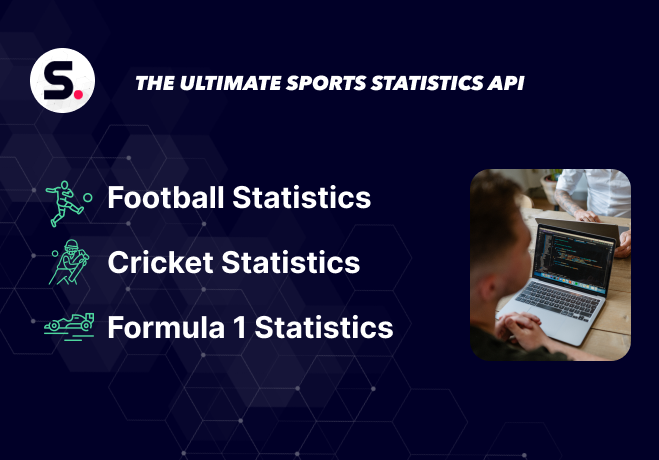
Discover our sports statistics API
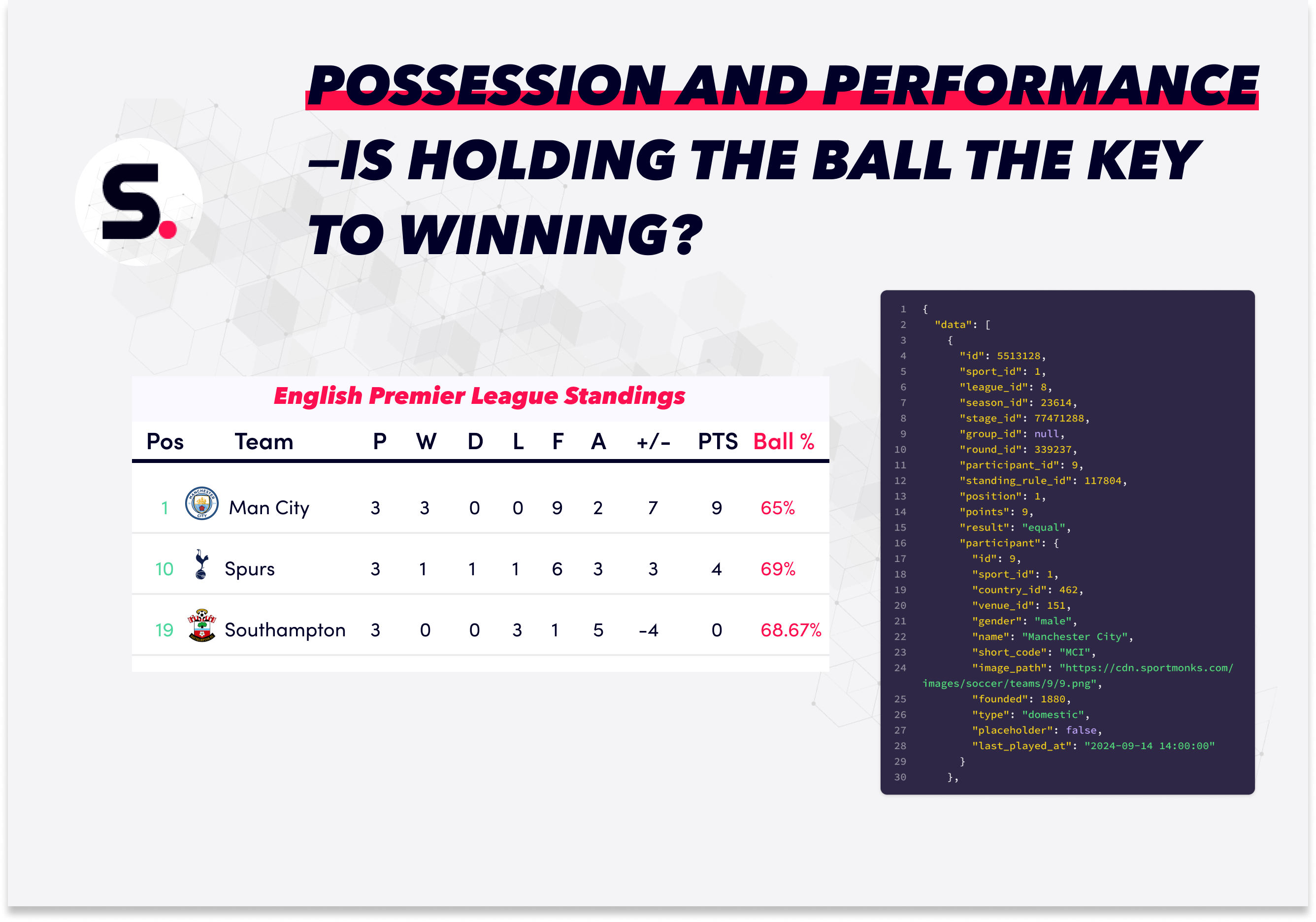
Does Possession Lead to Winning in Football?

El Clásico head-to-head and favourite to win based on Sportmonks data
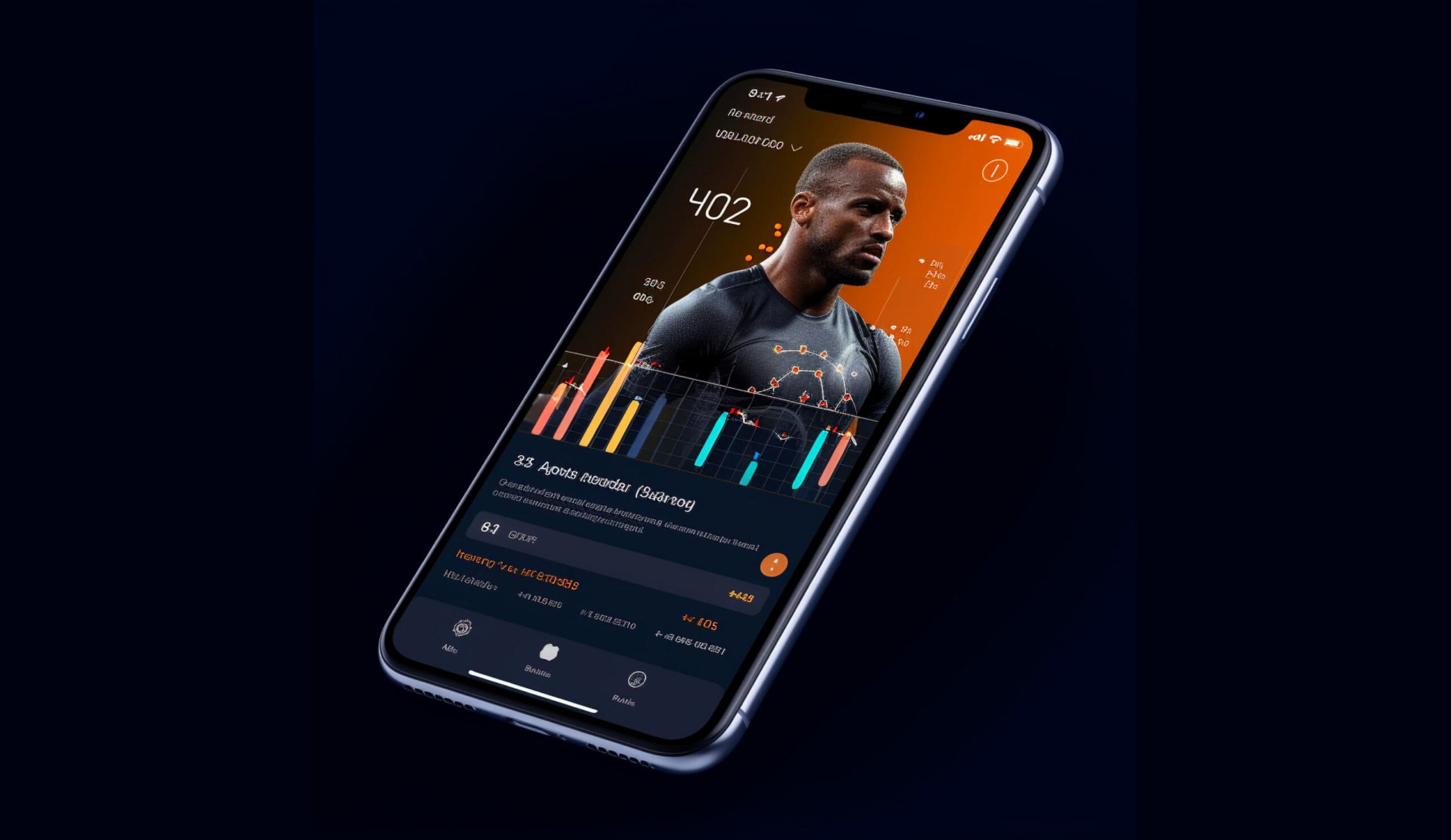
5 ways to use sport data
